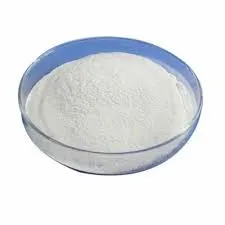
okt . 31, 2024 06:13 Back to list
hydroxyalkyl cellulose
Understanding Hydroxyalkyl Cellulose A Versatile Polymer
Hydroxyalkyl cellulose (HAC) is a type of non-ionic cellulose ether, derived from natural cellulose. It is synthesized by reacting cellulose with alkylene oxides, resulting in a polymer that possesses unique properties, making it a valuable ingredient in various industries. Hydroxyalkyl cellulose is characterized by its ability to modify viscosity, improve solubility, and enhance the stability of different formulations, thus expanding its applications across diverse fields such as pharmaceuticals, cosmetics, and food.
One of the primary advantages of hydroxyalkyl cellulose is its thickening properties. When added to liquids, it can significantly increase viscosity without compromising the clarity of the solution. This feature is particularly beneficial in the formulation of lotions, creams, and gels, where a smooth, viscous consistency is paramount for user experience. Additionally, hydroxyalkyl cellulose exhibits excellent water retention properties, which can help maintain moisture levels in various personal care products.
In the pharmaceutical sector, hydroxyalkyl cellulose serves as a reliable excipient in drug formulations
. It can be used to create controlled-release formulations that enhance the bioavailability of active pharmaceutical ingredients. Its ability to act as a binder in tablet formulations also aids in achieving the desired dosage uniformity and stability.hydroxyalkyl cellulose

Furthermore, hydroxyalkyl cellulose is an excellent emulsifier. Its amphiphilic nature allows it to stabilize emulsions, which is crucial in products such as creams and sauces, where oil and water phases need to be homogenized. This property not only improves texture but also enhances the shelf life of sensitive formulations by preventing phase separation.
The food industry also benefits from the functional attributes of hydroxyalkyl cellulose. It is often used as a thickening agent, stabilizer, or gelling agent in a variety of food products. Its fiber content can contribute to the nutritional value, while its ability to bind moisture can enhance the texture and mouthfeel of processed foods.
In conclusion, hydroxyalkyl cellulose is a versatile polymer that plays a significant role in multiple industries. Its unique properties, including thickening, emulsification, and moisture retention, make it an essential ingredient in pharmaceuticals, cosmetics, and food products. As industries continue to innovate and evolve, the demand for hydroxyalkyl cellulose is likely to grow, paving the way for further advancements in formulation technology.
-
Versatile Hpmc Uses in Different Industries
NewsJun.19,2025
-
Redispersible Powder's Role in Enhancing Durability of Construction Products
NewsJun.19,2025
-
Hydroxyethyl Cellulose Applications Driving Green Industrial Processes
NewsJun.19,2025
-
Exploring Different Redispersible Polymer Powder
NewsJun.19,2025
-
Choosing the Right Mortar Bonding Agent
NewsJun.19,2025
-
Applications and Significance of China Hpmc in Modern Industries
NewsJun.19,2025







